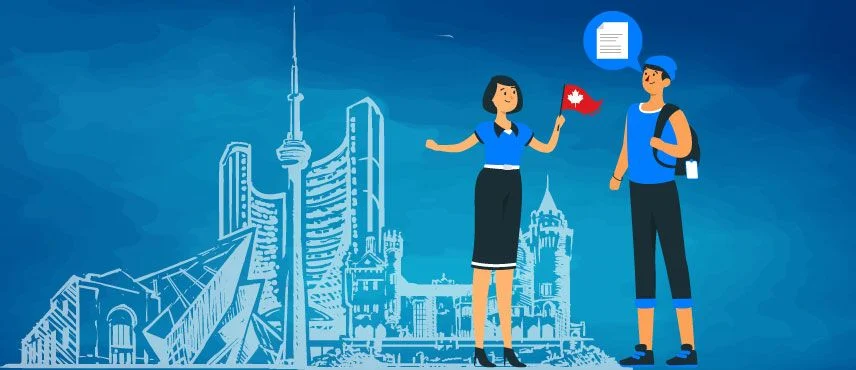When it comes to traveling to India, whether for business or medical reasons, understanding the visa requirements is crucial. India, with its vast opportunities for business and world-class medical facilities, attracts numerous visitors each year. This guide will walk you through everything you need to know about obtaining both business and medical visas for India, ensuring a smooth and hassle-free experience.
Understanding Business Visas for India
What is a Business Visa?
A Business Visa for India is a type of visa issued to foreign nationals who wish to visit India for the purpose of conducting business activities. These activities can include setting up a business, attending meetings, or exploring business opportunities. Unlike tourist visas, business visas are specifically designed for individuals who need to engage in commercial activities during their stay.
Types of Business Visas
India offers several types of business visas, including:
- Single Entry Business Visa: Valid for a single visit to India.
- Multiple Entry Business Visa: Allows multiple entries into India over a specified period.
- Employment Visa: For those coming to work with an Indian company.
Eligibility Criteria
To be eligible for a Business Visa, applicants must meet the following criteria:
- Proof of business activities or a letter of invitation from an Indian company.
- Financial stability to support oneself during the stay.
- A valid passport with at least six months of validity.
Required Documentation
The documentation required for a Business Visa includes:
- A completed visa application form.
- Passport-sized photographs.
- A valid passport.
- Proof of business activities or an invitation letter from an Indian company.
- Bank statements to prove financial stability.
Application Process
Applying for a Business Visa involves:
- Filling Out the Application: Complete the online visa application form on the Indian government’s official visa website.
- Submitting Documents: Submit the required documents to the nearest Indian embassy or consulate.
- Paying the Fee: Pay the applicable visa fee.
- Visa Interview: Attend an interview if required.
Fees and Processing Time
The visa fee varies based on the type of visa and the applicant’s nationality. Processing times can range from a few days to a few weeks. It is advisable to apply well in advance of your planned travel date.
Navigating Medical Visas for India
What is a Medical Visa?
A Medical Visa for India is intended for foreign nationals seeking medical treatment in India. Known for its advanced medical facilities and affordable treatment options, India is a popular destination for medical tourism. This visa allows individuals to travel to India for various medical procedures and consultations.
Types of Medical Visas
There are two main types of Medical Visas:
- Medical Visa: For individuals seeking treatment in hospitals or clinics.
- Medical Attendant Visa: For individuals accompanying the patient, such as a caregiver or family member.
Eligibility Criteria
To be eligible for a Medical Visa, you must:
- Obtain a recommendation from a recognized medical institution in India.
- Show proof of sufficient funds to cover medical expenses and living costs.
- Have a valid passport.
Required Documentation
The documentation required for a Medical Visa includes:
- A completed visa application form.
- Passport-sized photographs.
- A valid passport.
- A medical report from a hospital or clinic in India.
- Proof of financial means.
Application Process
The process for applying for a Medical Visa involves:
- Filling Out the Application: Complete the online visa application form.
- Submitting Documents: Provide the necessary documents to the Indian embassy or consulate.
- Paying the Fee: Pay the required visa fee.
- Visa Interview: Attend an interview if needed.
Fees and Processing Time
Medical Visa fees and processing times are similar to those for Business Visas. Processing can take a few days to a few weeks, so early application is recommended.
Common Challenges and Solutions
Common Issues with Business Visas
Some common challenges faced with Business Visas include:
- Incomplete Documentation: Ensure all documents are complete and accurate.
- Visa Denial: Address any concerns raised by the visa authorities promptly.
Common Issues with Medical Visas
Challenges with Medical Visas can include:
- Insufficient Proof of Financial Means: Ensure you provide adequate proof of funds.
- Delays in Processing: Apply as early as possible to avoid delays.
Tips for a Smooth Application Process
How to Avoid Common Mistakes
- Double-check all forms and documents for accuracy.
- Ensure your passport is valid for at least six months.
- Follow all instructions carefully.
Tips for Expediting Your Visa
- Apply well in advance of your travel date.
- Consider using a visa service for assistance with the application process.
Conclusion
Obtaining a Business or Medical Visa for India requires careful planning and attention to detail. By understanding the types of visas, eligibility criteria, and application processes, you can ensure a smooth and successful application. Whether you are traveling for business opportunities or seeking medical treatment, India offers a wealth of possibilities.
FAQs
What is the difference between a Business Visa and a Medical Visa?
A Business Visa is for conducting business activities, while a Medical Visa is for seeking medical treatment.
Can I apply for both types of visas simultaneously?
Yes, you can apply for both if you meet the criteria for each visa type.
How long does it take to process each type of visa?
Processing times can range from a few days to a few weeks for both Business and Medical Visas.
What happens if my visa application is denied?
If denied, you can reapply or seek clarification from the visa authorities on the reasons for denial.
Are there any special considerations for applying for a medical visa?
You must provide a medical report and proof of funds for treatment and living expenses.
